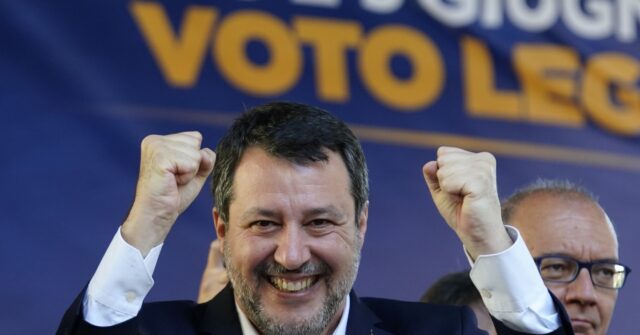Matteo Salvini, the leader of Italy’s League party and Deputy Prime Minister, has been acquitted of kidnapping charges stemming from his actions in 2019 when he blocked a migrant rescue boat from disembarking in Italy. A Palermo court dismissed the case after determining that the prosecution’s evidence did not substantiate a criminal conviction. At the time of the incident, Salvini was serving as Italy’s Interior Minister and had prevented the ‘Open Arms’ NGO vessel from offloading 147 migrants who had been onboard for over two weeks. Prosecutors argued that his actions were in violation of EU and international immigration laws, but Salvini contended that he was executing government policy and reflected the wishes of the Italian electorate.
Salvini’s defense hinged on the argument that he acted in accordance with national interests and government directives rather than engaging in criminal activity. Prior to the ruling, he expressed his pride in his measures against illegal immigration and rested his case on the notion that defending Italy’s borders is not a crime. Following the court’s decision, Salvini stated emphatically on social media that his actions were justified and symbolized a victory for the League party and for Italy as a whole. His commitment to deterrent immigration policies resonates with a considerable segment of the Italian population, which has seen rising internal and external pressures linked to immigration.
Support for Salvini extended beyond Italy, with prominent figures in Europe echoing his sentiments. Prime Minister Giorgia Meloni lauded the ruling, asserting that defending national borders should not be subjected to criminal prosecution. She framed the verdict as a significant endorsement of the government’s tougher stance on illegal immigration and human trafficking. Leaders from various populist parties across Europe rallied to support Salvini, suggesting his case represents a broader issue of national sovereignty and political persecution within the continent.
Amid these defense efforts, Salvini’s case illustrates the current political climate in Italy and the broader European Union regarding immigration policy. The Meloni government continues to implement strict measures aimed at controlling immigration, including a controversial plan to send migrants to detention centers in Albania, though this initiative has faced legal challenges from Italian judges asserting that it violates EU regulations regarding the safe return of migrants. This legal contention juxtaposes the government’s ambition to fortify border security against the overarching EU framework which governs asylum and migration practices.
Additionally, prominent supporters both in the political arena and online have been vocal about their opposition to what they perceive as political persecution of Salvini. Figures such as Elon Musk spoke out against the trial, framing it as an infringement on the right to defend one’s nation. These sentiments reflect a growing populist sentiment that resonates with activists and supporters advocating for stricter immigration policies across Europe.
The acquittal of Matteo Salvini marks a notable moment in Italy’s political landscape and raises questions about the future of immigration policy in Europe. As the Meloni government navigates the balance between adhering to EU laws and enforcing stringent border control measures, the implications of this case suggest an ongoing struggle over national sovereignty in the face of complex humanitarian and legal challenges. With Salvini’s case setting a precedent, the reactions from both domestic and international allies indicate a potential rallying point for populist movements that prioritize national interests in immigration and security matters.

